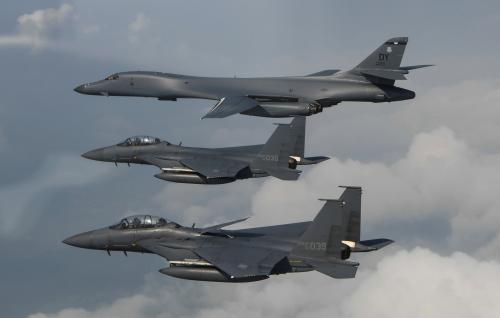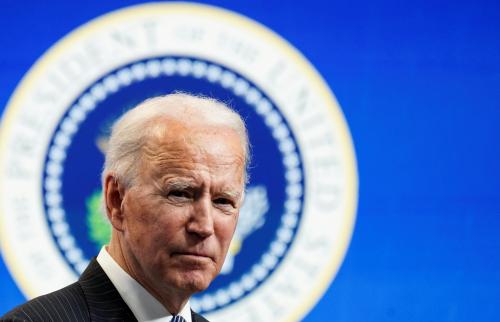Once again Congress is trying to legislate an end to American military involvement in Kosovo. A conference committee is considering a House bill that would force the withdrawal of all 6,000 U.S. troops now in Kosovo starting next April unless the president certifies that our European allies are providing the bulk of the troops and paying almost all of the cost.
Gov. George W. Bush opposes this Republican-sponsored bill—but only on the narrow grounds that it interferes with a president’s prerogatives. At the same time, his own repeated statements—and those of his running mate, Dick Cheney—leave little doubt that the Republican presidential ticket shares the views of the bill’s sponsors: Not only should Europe do more but U.S. troops should leave the Balkans—albeit in an “orderly” fashion—since their presence serves no American interests.
The governor and his supporters on the Hill are wrong on both counts. And pushing this issue now, when there are crucial elections in Serbia and the possibility of another confrontation in Montenegro, is doubly dangerous.
First, the facts. In the Balkans, Europe is doing its fair share—much more so than frequent congressional complaints imply. Today U.S. troops make up less than 20 percent of the total force in the Balkans—and less than 15 percent in Kosovo. Over the past decade, Europe has spent more than three times what the United States has spent in nonmilitary assistance. And nearly 90 percent of all such costs in Kosovo are covered by European taxpayers.
More generally, the repeated complaint that the United States does more than its fair share in global peacekeeping operations is simply untrue. Take the two largest U.N. operations today. In East Timor, the Australians have taken the lead, and many European countries have contributed substantial forces as well. In Sierra Leone, it is the Nigerians who carry much of the military burden—and Britain, which successfully intervened when that operation was on the verge of failure.
Overall, of the 37,350 troops currently deployed in U.N. peacekeeping operations, the United States deploys well under one percent of the total. To be sure, that is as it should be, given the many other global U.S. responsibilities. But the notion, frequently heard these days, that the United States is doing too much peacekeeping is simply untenable.
What about the other argument—that U.S. involvement fills a void left by others rather than serving real American interests? That contention ignores two key interests:
First, continued U.S. participation in NATO-led peacekeeping operations in Kosovo and Bosnia is necessary to maintain Washington’s critical leadership role in the Atlantic Alliance. If the United States is unwilling to share even minimally in the risks and burdens of participation in these efforts, how can it insist on retaining its leading role in a NATO that regards involvement in the Balkans as central to its mission? Equally important, if our alliances are as much in need of strengthening as Gov. Bush and his team claim, how is a unilateral withdrawal from NATO’s primary operations going to accomplish this?
More fundamentally, the United States is deeply involved in the Balkans because it has a basic interest in forging a Europe that is peaceful, undivided and democratic. We have invested heavily in this effort ever since World War II. The initial investment has paid off in a stable, prosperous and democratic partner in Western Europe. Since the end of the Cold War, Europe and the United States have been partners in the joint enterprise of extending the stability and security they have long enjoyed to the rest of the continent.
Central to this effort has been NATO’s involvement in the Balkans—the one European region in which neither peace nor stability is yet guaranteed. As the alliance leader, the United States must do its part. It need not always provide the lion’s share of the troops or money, and in this case we are doing neither. But as long as a peaceful and democratic Europe is threatened by the prospect of organized violence in the Balkans, getting the job done will require an American military presence.


Commentary
Op-edDon’t Pull Out of the Balkans
September 28, 2000